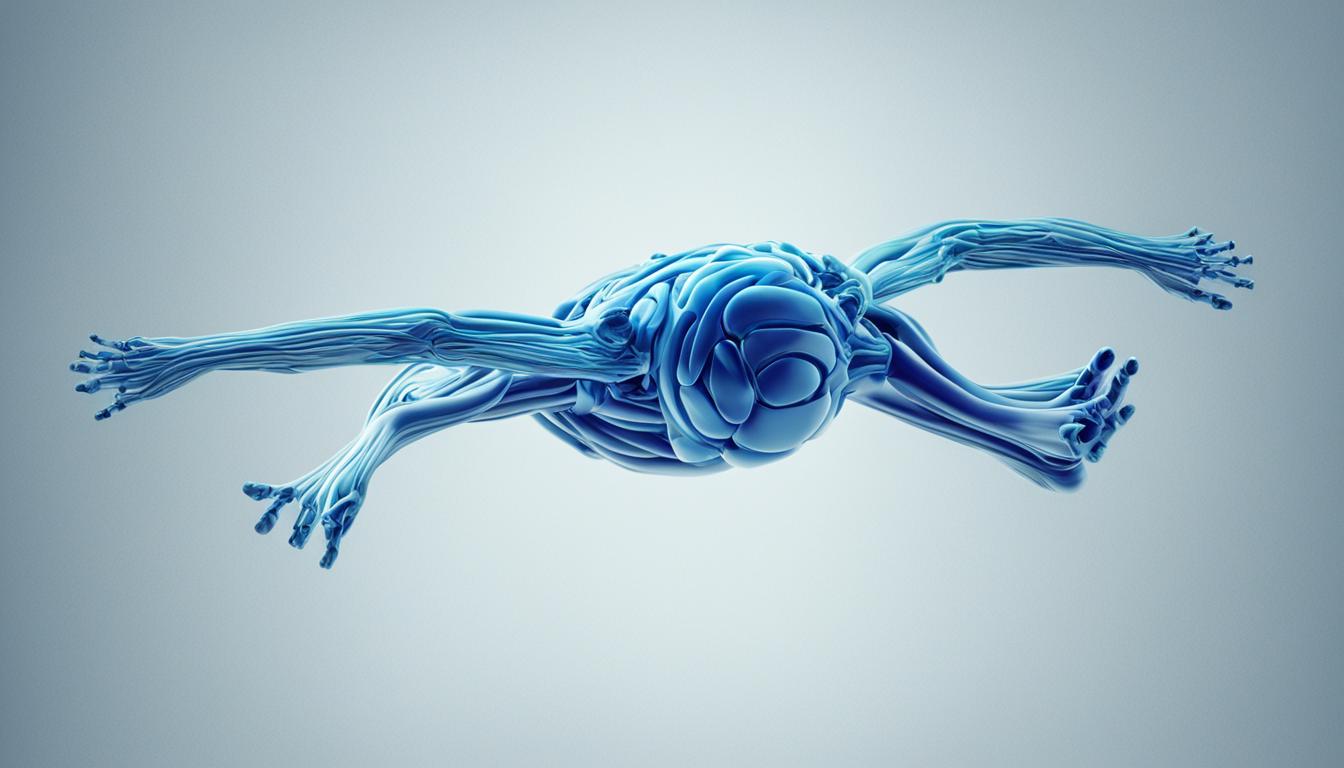Autonomic neuropathy damages nerves that control the heart and circulation. This can cause various bodily function issues. For example, people with this condition might face constipation or diarrhea, headaches, or dizziness when they stand up. They could also have high blood pressure, trouble breathing, or problems with urination and swallowing.
In addition, they might experience unexplained weight loss, nausea, and bloating. It can also lead to incontinence, or issues with sexual function like impotence in men and vaginal dryness in women. Even achieving orgasm can become harder. Changes in pupil size may also occur.
The reasons for autonomic neuropathy are many. They include diabetes, alcoholism, and kidney disease. Infections like HIV/AIDS, as well as trauma, multiple sclerosis, and certain surgeries can also lead to it. Quick detection and diagnosis are key to managing the condition.
At present, treatments for autonomic neuropathy aim at controlling symptoms. But, new studies show hope. They indicate that stem cell therapy might help. Stem cells from umbilical cord blood, especially mesenchymal stem cells, show potential. They can help nerves grow, heal blood vessels, and even reverse nerve damage.
For this reason, the Stem Cells Transplant Institute in Costa Rica is pursuing this avenue. They specialize in using stem cell therapy for autonomic neuropathy.
Key Takeaways:
- Autonomic neuropathy is a condition that affects the nerves controlling the heart and circulation.
- Common symptoms include constipation or diarrhea, headaches, dizziness upon standing, high blood pressure, difficulty breathing, and difficulty urinating.
- Causes of autonomic neuropathy include diabetes, alcoholism, kidney disease, infections, trauma, spinal cord injury, and surgery.
- Current treatment options focus on managing symptoms, but stem cell therapy shows promise in improving autonomic neuropathy symptoms.
- The Stem Cells Transplant Institute in Costa Rica offers stem cell therapy for autonomic neuropathy using mesenchymal stem cells derived from umbilical cord blood.
Causes of autonomic neuropathy and diagnosis
Autonomic neuropathy is when nerves that control the heart and other organs get damaged. This can be from many things, like health issues or accidents. Knowing what causes autonomic neuropathy helps doctors find the right treatment.
Causes of Autonomic Neuropathy
Autonomic neuropathy can be caused by:
- Diabetes: When diabetes isn’t managed, it can harm nerves, including the autonomic ones.
- Alcoholism: Drinking too much alcohol can damage nerves all over the body.
- Bone marrow disorders: Diseases like multiple myeloma can also harm nerves.
- Kidney disease: Badly functioning kidneys can damage nerves that control organs.
- Infections: Some infections, like Lyme disease and HIV, can lead to this condition.
- Inherited nerve disorders: Genetic problems, such as Fabry disease, can affect the nerves.
- Trauma: Injuries that hurt nerves can cause autonomic neuropathy.
- Spinal cord injury: Harm to the spine can stop nerve signals to the autonomic system.
- Surgery: Some surgeries, especially in the stomach or pelvis area, can also hurt nerves.
These are just a few reasons why autonomic neuropathy can happen. It’s essential to talk to a doctor to find out what caused it in your case.
Diagnosing Autonomic Neuropathy
To diagnose autonomic neuropathy, doctors do a full check-up. This includes:
- Looking at the patient’s medical history, surgeries, and any accidents.
- Checking the patient’s reflexes, blood pressure, and heart rate.
- Doing tests like nerve conduction studies to see how the nerves work.
- Blood work to find health issues like diabetes or kidney problems.
- Genetic tests for nerve disorders that are inherited.
- Imaging scans to see the nervous system’s structures.
- Tests for nerve functions, like the QSART or TST, to check specific abilities.
- Examining skin samples to look at nerve fibers for problems.
Early discovery of autonomic neuropathy is key for good treatment. Doctors can figure out the cause and plan care to ease symptoms and make life better.
Stem cell therapy for autonomic neuropathy
Stem cell therapy is a new hope for treating autonomic neuropathy. A key part is using mesenchymal stem cells (MSCs). These cells can create proteins that help neurons grow and survive, angiogenic factors that boost blood vessels, and substances to fix damaged nerves.
Studies suggest MSC therapy can slow down nerve damage and make life better for those with certain nerve disorders.
The Stem Cells Transplant Institute in Costa Rica specializes in this therapy. They use MSCs from umbilical cord donors. Giving the cells through an IV has proved to be the best method.
This therapy shows a lot of promise for dealing with autonomic neuropathy’s effects. It aims to heal the nerve damage at its root. This could help patients live better lives.

